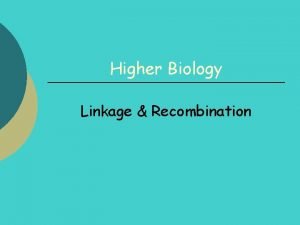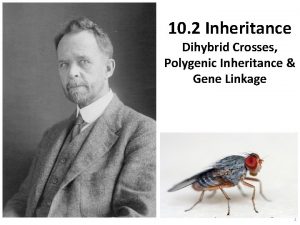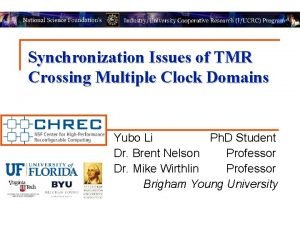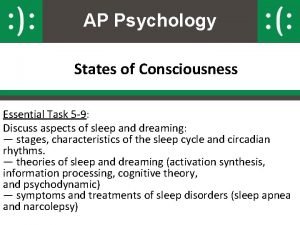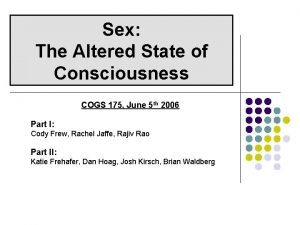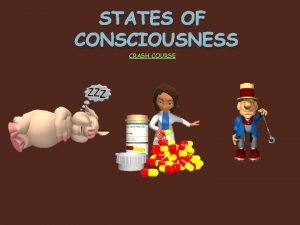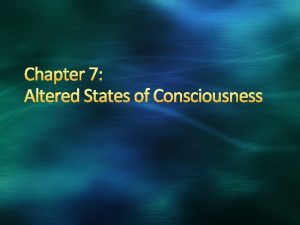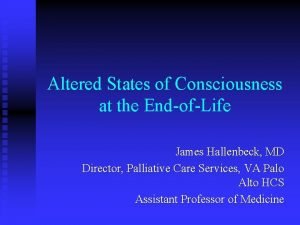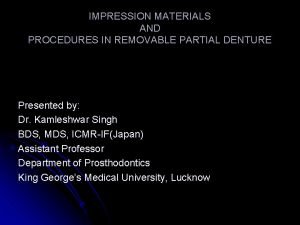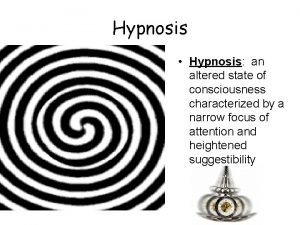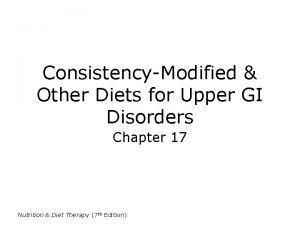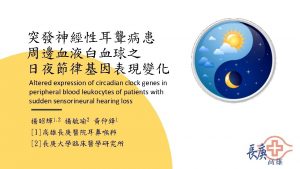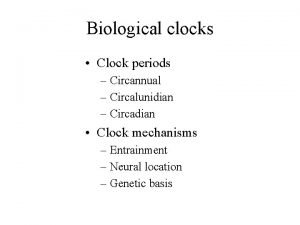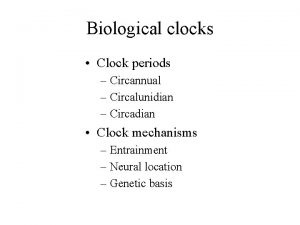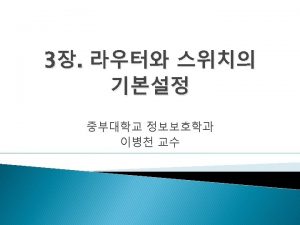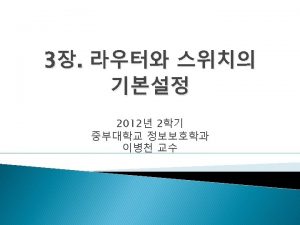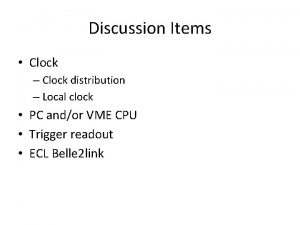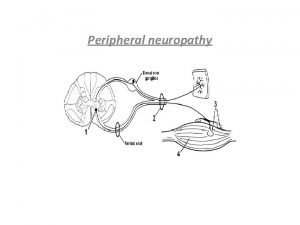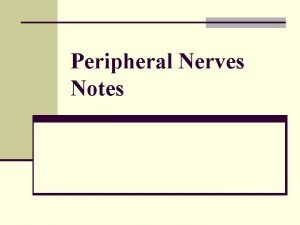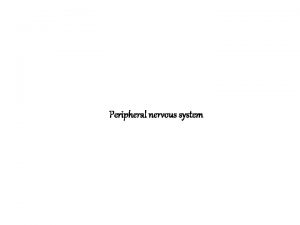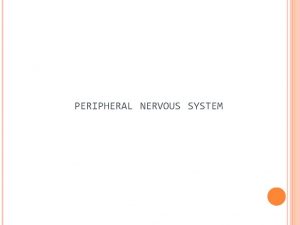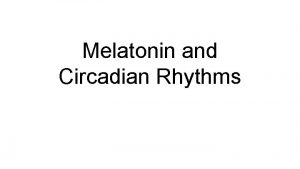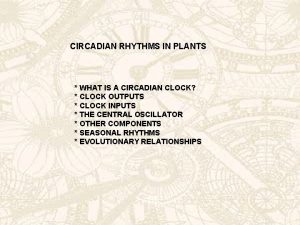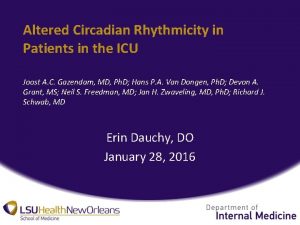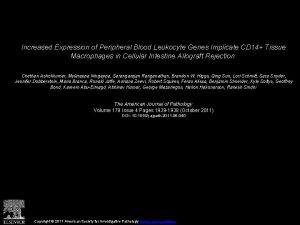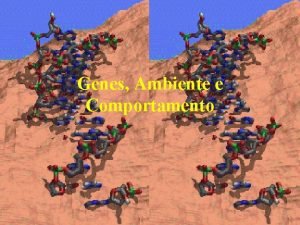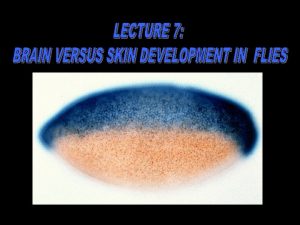Altered expression of circadian clock genes in peripheral




















- Slides: 20

突發神經性耳聾病患 周邊血液白血球之 日夜節律基因表現變化 Altered expression of circadian clock genes in peripheral blood leukocytes of patients with sudden sensorineural hearing loss 楊昭輝 1, 2 楊敏瑜 2 黃仲鋒 1 [1]高雄長庚醫院耳鼻喉科 [2]長庚大學臨床醫學研究所

Circadian rhythm • Endogenous oscillations in organisms that were observed in approximate association with the daily rotation cycle of the Earth. • Daily rhythmic changes are found in many physiological processes, including sleep, appetite, hormone level, metabolism, and gene expression. Young and Kay, 2001

Light is processed through the eye and is transmitted via the retinohypothalamic tract to neurons of the suprachiasmatic nuclei (SCN) in the hypothalamus. Hypothalamic– pituitary–adrenal (HPA) axis

Circadian clock genes (CCGs)


Circadian rhythm in inner ear • In the inner ear, diurnal changes of otoacoustic emissions of outer hair cells in the cochlea have been reported (Wit et al, 1985) • Presence of circadian oscillation in the inner ear. (Meltser et al, 2014) • Mice have different threshold shifts in response to noise at day and night. (Meltser et al, 2014)

Alteration of circadian clock genes (CCGs) in mental and neurodegenerative disorders PARKINSON’S DISEASE BIPOLAR DISORDER DEPRESSION

Stress affects circadian rhythm in mice • https: //www. waseda. jp/top/ennews/28579. Yu, et al. 2015

Biopsychosocial model Hoffmeister et al. 1988 ; Claudia et al. 2000

To survey the expression of CCGS in sudden sensorineural hearing loss (SSNHL) patients and healthy control Objectives To compared the expression of CCGs in SSNHL patients with different severity of disease To compared the expression of CCGs in SSNHL patients with different quality of sleep

Methods • It is proved that CCGs expression in morning PB leukocytes can reflect the peak of circadian rhythm of the body. (Yang et al, 2001; Kusanagi et al, 2008) • Peripheral blood (PB) samples were collected from SSNHL patients before steroid treatment and from normal controls in the morning (8: 00 -9: 00 am). • m. RNA were obtained from PB leukocytes of each subject. • Sleep questionnaire was gathered in SSNHL patients to investigate the quality of sleep

Expression of circadian clock genes (CCGs)

CCGs gene expression and disease severity of SSNHL

Immunocytochemistry in circadian clock genes

Sleep questionnaire

CCGs gene expression and quality of sleep in SSNHL patients

Possible explanation 1: Dysregulation of circadian corticosteroid peak in the inner ear • Daily corticosteroid peak in mammals achieved by hypothalamic–pituitary–adrenal (HPA) axis. • Because corticosteroid is essential in keeping homeostatic balance of inner ear, altered circadian rhythm may cause dysregulation of circadian corticosteroid peak in the body, and in turn affect the function of inner ear. Kalsbeek et al, 2012

Possible explanation 2 : Dysregulation of the immune system and affect the stress response in the inner ear • Stress response theory of SSNHL: systemic viral illness, inflammatory disorder, and mental or metabolic stress may induce immunity, which will result in the activation of NF-k. B in the cochlea • When patients suffered from ‘‘common cold, ’’ sleep disturbance may disturbed the circadian rhythm in immune system, and strengthen the inflammatory stress response in the cochlea, which then cause a ‘‘second hit’’ upon the inner ear. Merchant et al, 2008

Conclusion • Our results of this study present the association of altered expression of CCGs in peripheral leukocytes of patients with SSNHL. • Decreased expression of circadian clock genesis more obviously found in SSNHL patients with vertigo. Future investigation : Circadian disruption in inner ear disorders

Thanks for your attention! 高雄長庚醫院耳鼻喉科 楊昭輝 chouwhay@gmail. com
 Linked genes and unlinked genes
Linked genes and unlinked genes Homeotic genes
Homeotic genes Linked genes and unlinked genes
Linked genes and unlinked genes Circadian rhythm
Circadian rhythm Feelings in a dream chapter 7
Feelings in a dream chapter 7 1 minute=60s
1 minute=60s Fast clock to slow clock synchronization
Fast clock to slow clock synchronization Quadratic formula examples
Quadratic formula examples Sleep theories ap psychology
Sleep theories ap psychology History of altered books
History of altered books Sex altered state of consciousness
Sex altered state of consciousness Crash course altered states
Crash course altered states Altered skin integrity
Altered skin integrity Example of altered feeding routes
Example of altered feeding routes Chapter 7 altered states of consciousness
Chapter 7 altered states of consciousness What are fossils
What are fossils Altered state of consciousness psychology
Altered state of consciousness psychology Altered state of consciousness psychology
Altered state of consciousness psychology Altered cast technique indications
Altered cast technique indications Is hypnosis an altered state of consciousness
Is hypnosis an altered state of consciousness Mechanically altered diet
Mechanically altered diet
